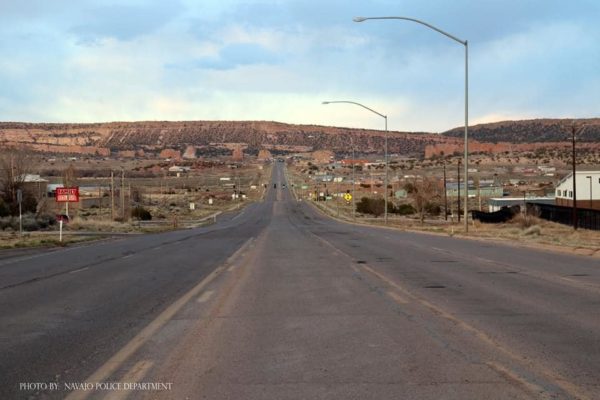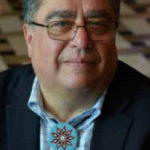
- Details
- By Levi Rickert
Opinion
Regardless of socio-economic status, religion, race or ethnicity, the COVID-19 pandemic has disrupted the normalcy of people’s lives.
Unfortunately, a disturbing pattern has begun to emerge: While COVID-19 may not discriminate, it does cause death at a disproportionate rate among people of color.
Throughout the world, people with underlying medical conditions are most susceptible to suffer the greatest, including death, from the coronavirus. These underlying conditions include, heart disease, diabetes, kidney disease, high blood pressure and cancer.
Unfortunately, systems already in place prior to COVID-19, the single largest crisis in our lifetimes, have caused for the disproportionate deaths to occur.
In Indian Country, Navajo Nation has become the epicenter among tribal nations with the largest number of confirmed COVID-19 (novel coronavirus) cases and deaths. With new cases reporting daily, the Navajo Nation, which is located on the country’s largest Indian reservation, has more confirmed cases related to COVID-19 than these eight states: Alaska, Hawaii, Maine, Montana, North Dakota, South Dakota, Wyoming, or West Virginia.
It’s not just Navajo Nation that is suffering. The deadly virus has spread quickly through certain cluster areas in New Mexico — including the Pueblo of San Felipe, Zia Pueblo and Pueblo of Zuni — that have become COVID-19 hotspots in Indian Country.
The fact COVID-19 is hitting Indian Country hard is not a surprise. For decades, health disparities American Indians and Alaska Natives communities have existed. American Indians and Alaska Natives suffer the greatest risk of death from heart disease, diabetes, kidney and liver disease than do their non-Native counterparts, according to the Indian Health Service (IHS).
The life expectancy of American Indians and Alaska Natives are 5.5 years less as compared to all other races’ populations (73.0 years to 78.5 years, respectively).
Stacy Bohlen (Sault Sainte Marie Tribe of Chippewa), executive director of the National Indian Health Board, said in a March 27, 2020 interview with the Navajo Times she does not believe IHS is prepared for coronavirus and neither is the United States as a whole.
“We need places where people can go for ICU beds, which we don’t have,” said Bohlen. “Our hospitals are 40 years old. The equipment is two times older than in any other place.”
Bohlen continued and said 90 percent of American Indian tribes have not received personal protective equipment they needed.
During times of crisis, cracks in the system become more apparent and obvious. This is particularly true now during the COVID-19 pandemic relating to the cracks in the system in Indian Country.
Sadly, the results of the cracks in a broken system are unnecessary deaths, which when reported are mere numbers. However, the numbers represent human lives. The numbers are mothers, fathers, sisters, brothers, grandmothers, grandfathers, aunts and uncles.
Beyond the personal illnesses and deaths brought on by COVID-19, Indian Country faces a whole different challenge with the voluntary closure of tribal casinos and other tribal business enterprises. When the casinos closed, so did money flowing into Indian Country. While sovereign nations, tribes do not have the capability to collect taxes.
 Levi Rickert
Levi Rickert
The California Indian Gaming Association (CNIGA) says voluntarily shutting down its tribal gaming facilities was the responsible decision to make, however, the decision to close resulted in tribal governments revenue streams being reduced to zero overnight, which losses come with an enormous cost to its tribal citizens and local communities where they are located, CNIGA Chairman James Siva (Morongo Band of Mission Indians) said to Native News Online last month.
No one at this point knows when tribal casinos and closed tribal business enterprises will reopen. So, as the closures continue, Indian Country will work to survive on funds provided through the CARES Act, which have limiting stipulations that at this point do not allow for relief for closed down casinos.
To Indigenous people of this land, survival has been part of our history since the arrival of the first boat loads of European immigrants arrived on our land centuries ago.
The novel coronavirus is not the first deadly disease American Indians have faced. Our ancestors have had to fight off smallpox and other diseases that were foreign to their immune systems and caused many deaths. Our ancestors have had to survive wars, boarding schools and in massive poverty, which contributes to early deaths.
The good news is American Indians and Alaska Natives are resilient and survivors.
Levi Rickert (Prairie Band Potawatomi Nation) is the publisher and editor of Native News Online.
More Stories Like This
Native News Weekly (August 25, 2024): D.C. BriefsDeb Haaland Rolls Out Affordability Agenda in Albuquerque
Boys & Girls Clubs and BIE MOU Signing at National Days of Advocacy
National Congress of American Indians Mourns the Passing of Former Executive Director JoAnn K. Chase
Navajo Nation Mourns the Passing of Former Vice President Rex Lee Jim
Help us defend tribal sovereignty.
At Native News Online, our mission is rooted in telling the stories that strengthen sovereignty and uplift Indigenous voices — not just at year’s end, but every single day.
Because of your generosity last year, we were able to keep our reporters on the ground in tribal communities, at national gatherings and in the halls of Congress — covering the issues that matter most to Indian Country: sovereignty, culture, education, health and economic opportunity.
That support sustained us through a tough year in 2025. Now, as we look to the year ahead, we need your help right now to ensure warrior journalism remains strong — reporting that defends tribal sovereignty, amplifies Native truth, and holds power accountable.
 The stakes couldn't be higher. Your support keeps Native voices heard, Native stories told and Native sovereignty defended.
The stakes couldn't be higher. Your support keeps Native voices heard, Native stories told and Native sovereignty defended.
Stand with Warrior Journalism today.
Levi Rickert (Potawatomi), Editor & Publisher

